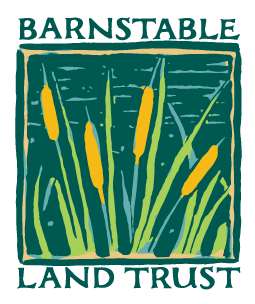BLT in the News: Our View: To save historic buildings, follow land conservation model
By Janet Milkman and Mark Robinson, The Barnstable Patriot
Published January 25, 2021
On December 29, the Barnstable Patriot published an opinion piece from David Martin that called for regulating land trusts to protect historic buildings. This is our response.
As Cape Codders, we love our peninsula: the pull of the land, the gray-shingled houses, the colors of pine and sandy soil, and the ocean in all seasons is strong.
Over the last 50 years, land conservation organizations have figured out how to protect the landscapes and vistas by building an infrastructure of community organizations. Nearly every town has a small nonprofit land conservation organization working to leverage local public funds with private donations and state and federal grants. The Compact of Cape Cod Conservation Trusts supports all these groups with deep technical knowledge and relationships built over decades.
Historic preservation advocates could learn from this model to preserve buildings. There are hundreds of historic buildings on Cape Cod and very limited public resources to keep them up.
Further regulating land trusts when preserving land with historic buildings on them, as suggested recently on these pages by David Martin, would only limit land preservation and would not do anything to save buildings.
On Cape Cod and elsewhere, most historic buildings are taken down by builders or developers, not land trusts. The Barnstable Historical Commission regulates historic buildings and only rarely is the applicant a land trust.
The loss of a historic landmark on a scenic roadway is like losing an old friend to many people. That’s why Barnstable Land Trust (BLT) worked for eight years to find a restoration and reuse solution for the farmhouse on the beautiful Fuller Farm, acquired for conservation in 2012. But there was no entity with the knowledge, fundraising, and technical capacity to support these efforts.
In the end, the buildings came down to allow safe use of the property for public access.
This spring, BLT will begin restoring the historical use of the property for community agriculture. Large parcels of woodland and fields such as at Fuller Farm are few and far between in Barnstable. We all benefit from the Fullers’ decision that kept the land together in the sale to BLT, when they could have sold off some lots to invest in the buildings.
In our experience, instead of further regulation, as Mr. Martin recommends, we need to build the infrastructure and popular support to raise private and public funds and develop the technical knowledge and relationships to make it easier to preserve historic buildings. Underfunded historical societies, some even at the village level, might consider a network to share expertise as the Cape land trusts do. It could be a long-term solution to a long-term problem.
Mark Robinson serves as executive director of the Compact of Cape Cod Conservation Trusts since its founding in 1986. The Compact is a regional land trust service center that provides 30 local land trusts and watershed organizations with technical expertise in all aspects of preserving land.
Janet Milkman is executive director of the Barnstable Land Trust, a community supported nonprofit working to preserve the natural resources and special places for current and future generations since 1983.

